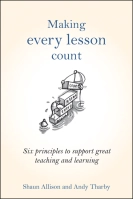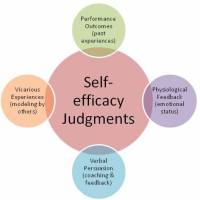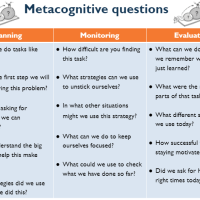 Last month our fantastic English department hosted a 2 day OFSTED subject inspection by an HMI. The inspection was a great success and validated the brilliant work that is being done by the English department – and mirrored elsewhere in the school.
Last month our fantastic English department hosted a 2 day OFSTED subject inspection by an HMI. The inspection was a great success and validated the brilliant work that is being done by the English department – and mirrored elsewhere in the school.
This article is an attempt to capture some of the main points from the report and the experience of the English teachers who were observed during the inspection – with a view to further supporting the development of teaching and learning.
From the report….
The following extract from the report (quality of teaching section) gives good guidance to teachers, when reflecting on their own practice:
- Teachers are able draw on a range of high-quality, thought-provoking resources when planning their lessons. Their teaching is characterised by strong subject knowledge informing high quality questioning and probing and routine checking and re-shaping of tasks. Skills and understanding are effectively built with sufficient time for discussion, independent reflection and writing.
- Marking of work is helpful and developmental. Targets for improvement are well-known to students and understood. Students like the fact that teachers have high expectations of them and believe in their potential to achieve well. Students attribute their interest in the subject and their love of reading directly to the quality of the teaching they receive.
- In the best lessons, teachers reference the need for standard English and students are provided with a list of ‘banned’ words, to remind them.
From the teachers…..
When teachers were asked to reflect on their observed lessons and the feedback from the HMI, this is what they said:
“In my lesson, the inspector liked…
- Regular whole-class checking and feedback (mini-plenaries) during independent task to gauge progress and move the students forward;
- Use of same-ability groups and carefully scaffolded worksheets;
- Use of stimuli from the outside world – in my case foods they had not tasted before – to engage students.
She seemed to love the phrase ‘rapid and sustained progress”
“All students knowing MELS (Minimum Expected Levels – End of Keys Stage Target).
All students being aware of individual targets in order to hit/exceed MEL
Books marked and evidence of targets being met/worked towards.
She liked that I had students with the same targets supporting each other by putting examples of good practice on the board for each other to see and be inspired by.
Basically I was a facilitator and they independently ‘got on’. There wasn’t a single thing they couldn’t work out for themselves because I created the appropriate resources. These were very simple resources – nothing fancy: Helpsheets, thesauruses and an area on the board for students to share ideas and inspire each other. Stuff that can be done every day and every lesson because it needs little/no planning.
She liked that I stopped everything every so often and reminded them to ‘focus on those targets’.”
“The inspector liked the way I set a challenging task and then scaffolded the support so that students of all abilities could achieve. I directed the students to focus on specific skills in relation to the ir MEG (Minimum Expected Grade – target).
Questioning was also a key aspect. She liked the way I used questioning to help the students reflect on and deepen their learning.”
 “I was praised for the way in which I used frequent learning checks throughout the lesson. At certain times during the lesson, students had to swap books and then make a judgement about whether or not they were meeting the learning objective. I then gave them model sentences to help them give specific feedback to their peers – to help them develop their leaning towards their own personalised target. She liked the way that this was challenging a low ability group to really think about and evaluate their learning.”
“I was praised for the way in which I used frequent learning checks throughout the lesson. At certain times during the lesson, students had to swap books and then make a judgement about whether or not they were meeting the learning objective. I then gave them model sentences to help them give specific feedback to their peers – to help them develop their leaning towards their own personalised target. She liked the way that this was challenging a low ability group to really think about and evaluate their learning.”
 “In my lesson the key to success was questioning. The inspector commented on the fact that I obviously had great subject knowledge and knew, in detail, what I wanted them to learn. In my planning I then configured a series of key questions that I would ask – to support and deepen this learning. I never leave questioning, especially the key questions, to chance – I always plan them meticulously.
“In my lesson the key to success was questioning. The inspector commented on the fact that I obviously had great subject knowledge and knew, in detail, what I wanted them to learn. In my planning I then configured a series of key questions that I would ask – to support and deepen this learning. I never leave questioning, especially the key questions, to chance – I always plan them meticulously.
I then also listened very carefully to their responses, unpicked them and then questioned them further. If their response was not what I wanted, I didn’t let them ‘get away with it’! Again, through my planning, I had up my sleeve a variety of alternative questions that enabled them to get to where they needed to be.”
A huge thank you to the English teachers who reflected on the feedback they were given and then then took the time to share in this way.
Summary
From this experience, there seems to be common threads when it comes to looking at what makes good and outstanding teaching. Not surprisingly they are:
- Questioning
- Feedback
- Independence
- Challenge
These four key elements of effective pedagogy have also been discussed here













Pingback: Deep Questioning | Class Teaching